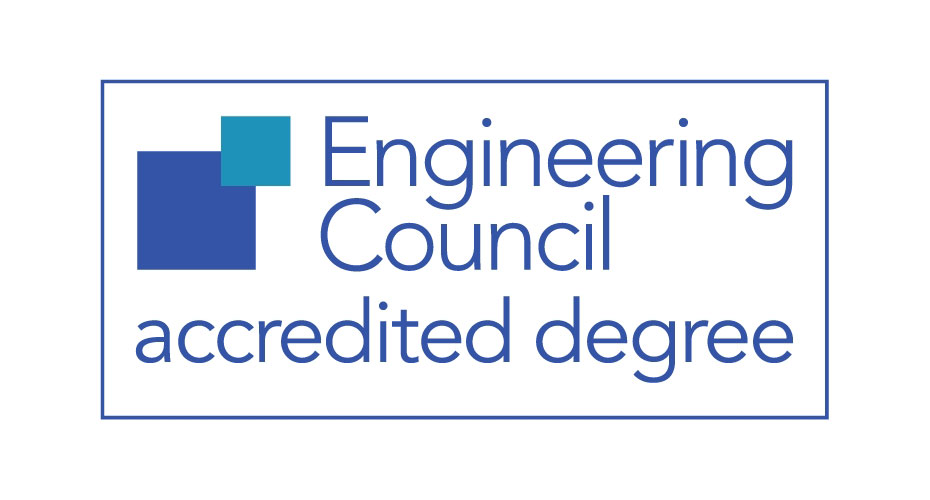| UCAS code | 1234 |
|---|---|
| Duration | 1 year full time Up to 3 years part time |
| Entry year | 2024 |
| Campus | Penryn Campus |
| Discipline | Mining Engineering |
| Contact |
| Typical offer | 2:2 honours degree |
|---|---|
Overview
- For engineers and geologists already in employment and looking for skills and knowledge enhancement, or geology and engineering graduates keen to specialise in mining, general management and excavation (geotechnics and tunnelling)
- Taught by the internationally established Camborne School of Mines (CSM), a combined mining school and geoscience department
- Learn specialist analytical, design and management skills that are relevant to the mining industry
- Have the opportunity to undertake projects directly linked with industry, which may result in industrial placements for their project period.
- Benefit from excellent links with the local and international minerals industry, and learn alongside a cohort of students from around the world.
![]()
Top 15 in the world for Mineral and Mining Engineering
QS University World Subject Rankings 2023
![]()
Leading research facilities include £2 million analytical mineralogy labs and an automated QEMSCAN scanning electron microscope; the first in any university worldwide
![]()
1st in the UK for Materials and Mineral Engineering
QS World University Subject Rankings 2023
Accreditations


This degree has been accredited by the Institute of Materials, Minerals and Mining (IOM3) under licence from the UK regulator, the Engineering Council as meeting the requirements for Further Learning for a Chartered Engineer (CEng) for candidates who have already acquired an Accredited CEng (Partial) BEng (Hons) undergraduate first degree. See www.iom3.org for further information.
Accreditation is a mark of assurance that the degree meets the standards set by the Engineering Council in the UK Standard for Professional Engineering Competence (UK-SPEC). Accreditation is awarded for a maximum of 5 years under each assessment exercise. The dates applicable to the current accreditation of this degree programme can be viewed on the Engineering Council list of accredited degrees. See www.engc.org.uk for further information.
Entry requirements
All applicants are considered individually on merit although we usually require a 2:2 honours degree (or equivalent) in a relevant science or engineering discipline.
Entry requirements for international students
English language requirements
International students need to show they have the required level of English language to study this course. The required test scores for this course fall under Profile B2. Please visit our English language requirements page to view the required test scores and equivalencies from your country.
Course content
You will study 180 credits to obtain an MSc and 120 credits for a PgDip. You can either study the course full time over a year or part-time over 3 years.
The modules we outline here provide examples of what you can expect to learn on this degree course based on recent academic teaching. The precise modules available to you in future years may vary depending on staff availability and research interests, new topics of study, timetabling and student demand.
Fees
2024/25 entry
UK fees per year:
MSc:
£13,700 full-time
£6,850 part-time (where available)
PgDip:
£9,140 (where available)
International fees per year:
MSc:
£27,500 full-time
£13,750 part-time (where available)
PgDip:
£18,340 full-time (where available)
LME Scholarship
Two scholarships worth £26,500 each are available to students who have had an application accepted to one of the Camborne School of Mines MSc programmes for September 2024 entry. This scholarship programme is funded by a generous donation from London Metal Exchange (LME). As part of the scholarships the successful candidates will have the opportunity to undertake mentoring with LME staff and to work with LME on their dissertation project. Find out more.
Scholarships
We invest heavily in scholarships for talented prospective Masters students. This includes over £5 million in scholarships for international students, such as our Global Excellence Scholarships*.
For more information on scholarships, please visit our scholarships and bursaries page.
*Selected programmes only. Please see the Terms and Conditions for each scheme for further details.
The best part about this course is how diverse and practical it is.
The facilities are world-class and you get to learn from the reputable professors who have written most of the text books we learn from and are teaching us things they are currently researching. The support from my lecturers has been great, they have an open-door policy which means we can always pop in and ask them anything we need to.
Freddy
Graduated from MSc Mining Engineering
Teaching and research
The taught part of the programme is structured into two semesters. Field visits and practical field-based assignments are used, where appropriate, to emphasise key areas within each module.
For the award of the MSc, students must pass four modules and complete an individual project or dissertation. To obtain a Postgraduate Diploma (PgDip), students must pass two modules and a dissertation. The project is undertaken during June to September, after the second semester examinations. Completed dissertations must be submitted by mid-September.
Students are encouraged to undertake projects directly linked with industry, which may result in industrial placements for their project period.
Timetabling is designed to allow the completion of most suitable module combinations and the project within one calendar year.
A research and practice-led culture
You will discuss the very latest ideas, research discoveries and new technologies in seminars and in the field and you will become actively involved in a research project yourself. All our academic staff are active in internationally-recognised scientific research across a wide range of topics. You will also be taught by leading industry practitioners.
Careers

Reputational and networking benefits
A unique benefit studying at Camborne School of Mines is the community and relations you will gain both during, and after your studies. Camborne School of Mines has a world-class reputation and excellent alumni network, allowing our graduates to prosper in their respective fields in all corners of the globe:
“I have worked in many places around the world and have yet to visit a country where I could not find at least one CSM graduate. In fact, there are normally several and they can often be found in influential positions.”
Tim Henderson, CSM graduate and current Technical Director at Glencore
Graduate skills and destinations
In addition, a degree form Camborne School of Mines will teach the necessary technical skills and theoretical knowledge required, as well as additional complementary skills relating to communications, teamwork and problem solving. Graduates of this programme have gone on to enjoy careers as mining engineers, geotechnical engineering, drill and blast engineers, automatic fare collection engineering and geologists. The companies our graduates have gone on to work for range from large companies such as Glencore, Atlas Iron, Vedanta Resources and First Quantum Minerals. This information has been taken from the Destinations of Leavers from Higher Education (DLHE) Survey (2011-2016). Please note that, due to data protection, the job titles and organisations are listed independently and do not necessarily correspond.
Support and opportunities
The Career Zone (CAS) at our Cornwall Campus provides high-quality careers information and guidance to students of all disciplines. Our experienced careers team can give you individual support whilst you are at the University and after you have graduated.
Services include talks, confidential careers interviews and an extensive careers library of reference books, magazines and journals. A new computer suite is also available for accessing online careers information, vacancy services and specialist software on, for example, sources of funding for courses and worldwide volunteering.
The CAS can help you to identify attractive jobs, careers paths and employers and assist with your CV, interview technique and identifying work experience placements.











